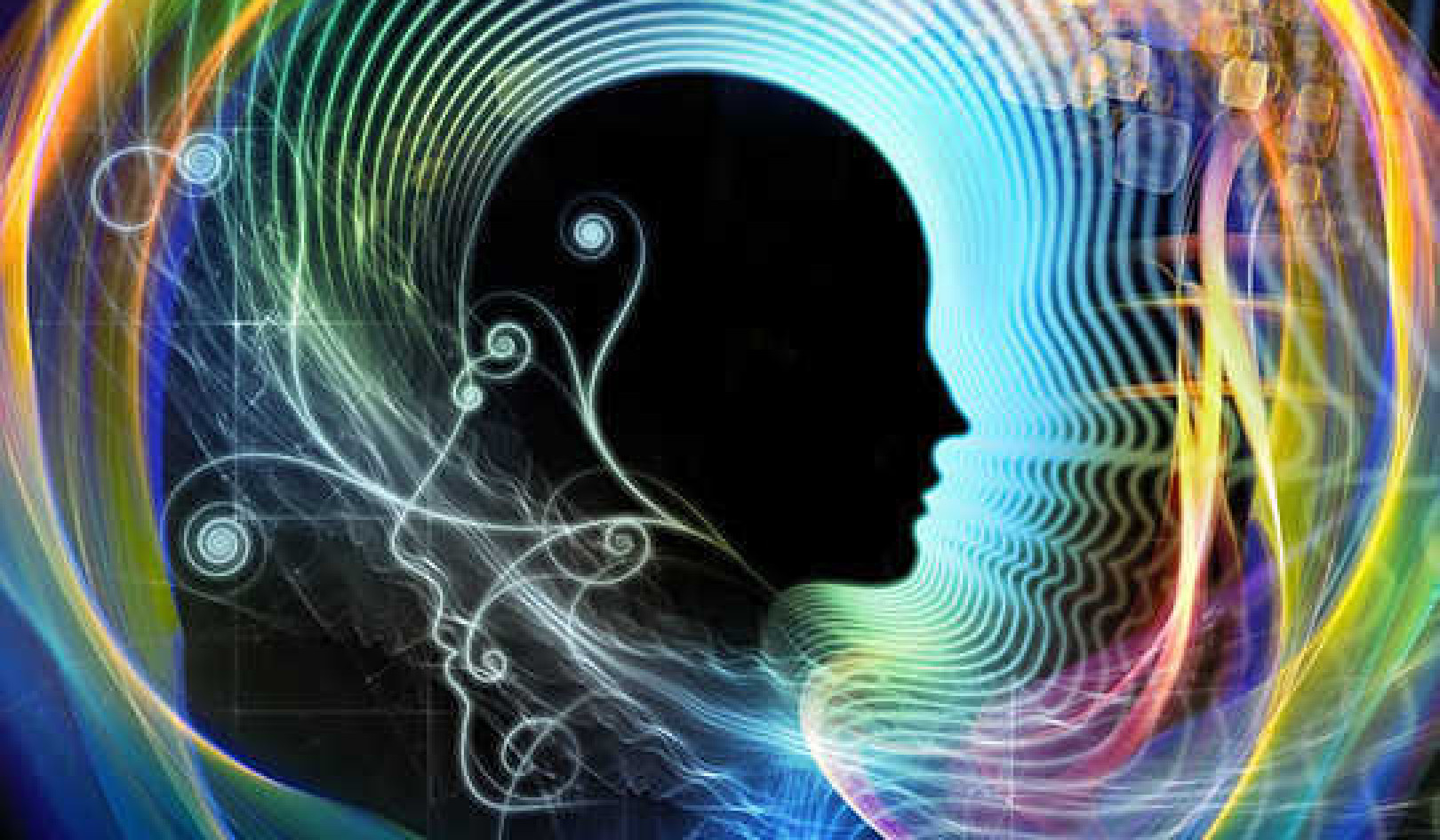
Image by PublicDomainPictures
Rebecca had everything going for her: a successful career, loving husband, and two children in college. For years she would leap out of bed, make breakfast for her husband and children, and rush off to work as a family counselor. Day after day, Rebecca reminded other women of how to reclaim their lives and renew their energies when menopause showed up at their door.
Yet there she was, tissue in hand, staring at the floor in her living room. “What’s the matter, honey?” her husband asked. As she struggled for an answer, all Rebecca could say was, “I dunno, something’s not right.” Little did she know that deep inside her mind and body, a battle had been brewing for years.
In the past, she had brushed these feelings aside by keeping herself busy with work and household chores. Now they were surfacing, and no matter how much she tried, Rebecca could no longer ignore them. Something was indeed not right, and even Rebecca did not have a clear answer as to why she felt this way; neither was she to blame.
On the surface everything was perfect, but underneath, the foundation was cracking away. Between work and family, Rebecca had somehow lost sight of her inner self along the way, and now that she was on the path toward menopause, her body and mind were giving Rebecca an ultimatum: “Heed our call or else!”
Depression and Menopause Don't Necessarily Go Together
It is estimated that 8 to 15 percent of all women are faced with depression at one time or another as they go through menopause. Close to nine million women nationwide are plagued with depression at some point in their lives. Even though depression is affected by hormonal changes and genetic factors, it is not dictated by them.
Despite fluctuations in hormone levels and the existence of genetic precursors, many women go through menopause without becoming depressed. The issue is whether or not women allow these factors to take over and define who they are.
Even if you aren’t genetically or hormonally prone to depression, factors such as being a member of the sandwich generation, feeling a loss of youthfulness, or missing your child(ren) after they leave the house, all contribute to the emotional issues associated with menopause. The rapid fluctuation of hormones and other biological changes simply add more fuel to the fire. Women who are prone to depression before the onset of perimenopause or menopause may experience increased depression around this time.
Depression Is More Than Just Feeling Sad
Depression is actually more than just feeling sad and can manifest in a variety of ways depending on the individual and situation. The Diagnostic and Statistical Manual of Mental Disorders (DSM) includes three general criteria in the diagnosis of depression:
1. Depressed mood
2. Loss of interest and enjoyment in usual activities
3. Reduced energy and decreased activity
The DSM also states that major depressive disorder is a more serious form of depression that includes the above criteria with the addition of at least five of the nine symptoms listed below occurring on a daily basis:
1. Depressed mood most of the day
2. Diminished interest or pleasure in all or most activities
3. Significant unintentional weight loss or gain
4. Insomnia or sleeping too much
5. Agitation or psychomotor retardation noticed by others
6. Fatigue or loss of energy
7. Feelings of worthlessness or excessive guilt
8. Diminished ability to think or concentrate, or indecisiveness
9. Recurrent thoughts of death
Many, if not most, people experience depression at least once in their lifetime; hence the diagnosis of clinical depression is not as easy as it may seem. The DSM distinguishes between depressive episodes and major depressive disorder: The former is often relatively easier to address through making lifestyle changes such as eating and exercising right for your body type and avoiding certain emotional traps with the help of a friend, family member, or counselor. Major depressive disorder, on the other hand, usually requires the assistance of a trained professional.
When to See a Professional about Depression
• If you are having suicidal thoughts
• If depression is interfering with your everyday life
• If it is causing you to constantly shut others out of your life
• If it lingers no matter what you do
Western Perspectives on Depression
Before we dive in, let’s discuss depression from the standpoint of modern medicine and science and then from an Eastern medicine view. Depression is thought to be a result of a lack of serotonin in the brain, a loss that specific drugs, such as selective serotonin reuptake inhibitors (SSRIs), can prevent. Yet the jury is still out over whether or not depression is caused by an estrogen, progesterone, and/or serotonin imbalance, since a reduction in estrogen levels or a lack of serotonin in the brain does not always lead to depression.
In its search for a physiological source of depression, modern medicine has identified several possible perpetrators, but no prime suspects. Will there ever be a final verdict? I’ve met numerous people who hop from one medication to another as their doctors follow new trends in research or as symptoms come and go, but the end result is often the same: lingering depression. Perhaps modern research is looking for depression in all the wrong places.
The use of SSRIs and/or estrogen to treat depression may sound tempting since most of us would love to rid ourselves of depression by simply controlling the chemical processes within the body. Yet side effects from such medication often include nausea, nervousness, dizziness, reduced sexual desire, drowsiness, and weight gain. Whereas some individuals may benefit from these and other antidepressant and hormone-based medications, others find that the benefits do not outweigh the risks.
Antidepressants act as a buffer between our mind and emotions. Yes, if there is a raging battle within us, then perhaps a buffer may be the first step toward resolution. Yet inevitably both sides must come to terms with one another if there is to be lasting peace. In some cases, the advice of a specialist may be necessary to determine the best medical approach.
Eastern Perspectives on Depression
Eastern medicine views depression not as a chemical or neurological issue but as a lack of harmony and balance of organ-related energies within the body. Each emotion is associated with a particular organ, and when the two are in balance, they promote organ energy flow, but when they aren’t, energy becomes stagnant.
Each organ in the body can be compared to a member of an immediate family. If the sister liver gets along with the brother lungs by exchanging ample amounts of energy, then their correlating emotions of sorrow and joy will be also be in harmony, benefitting mother heart, daddy kidney, and so on. Maintaining balance in an immediate family can be quite a challenge, let alone among our internal organs! Yet in a family supported by a strong bond of love, even if children misbehave or parents argue from time to time, there is no long-term negative effect.
The same goes for the relationship between our organs, since liver joy and lung sorrow are destined to argue once in a while. Yet as we saw in Rebecca’s situation, liver joy was the predominant emotion for most of her life, and she slammed the door in sorrow’s face every time it came knocking. It was simply a matter of time before lung sorrow busted through.
The Yin and Yang of Depression
In Sasang medicine, depression is seen as a combination of several emotions, contrary to the common Western idea, which defines it as a feeling of despondency. The cause of depression differs according the body types and their predominant emotions. For example, the Yin Type A’s hyperdeveloped liver, associated with joy, may be the underlying source of depression.
How could joy be the root of depression? If the Yin Type A feels entitled to joy and things don’t flow well, then depression can easily take over. Other predominant emotions, such as comfort and anger, can also instigate depression.
Table 6.1 provides a list of predominant emotions and their effects for the four body types.
|
Table 6.1. Predominant Emotions and Body Types |
||||
|
Body Type |
Strongest Organ |
Predominant Emotion |
Behavior when Balanced |
Origin of Imbalance |
|
Yang |
Spleen |
Anger |
Standing up for oneself and others |
Others looking down on them or treating them unjustly |
|
Yang |
Lungs |
Sorrow |
Speaking the truth |
Others keeping secrets |
|
Yin |
Liver |
Joy |
Helping others |
Others not helping them |
|
Yin |
Kidneys |
Calmness |
Protecting others/giving them a sense of security |
Feeling insecure or unprotected |
Tips For Handling Depression Regardless Of Your Type
Tip #1: Don’t Ignore Your Feelings
Depression doesn’t randomly show up without reason; an underlying component usually needs to be addressed. If you feel stagnant, locked, or unable to move forward in life, then take a deep look within and sift through the possible causes. Most of the time, these feelings are a result of unaddressed emotions, desires, and feelings that are asking for your attention.
It might be helpful to consult a therapist or friend who would listen and discuss effective ways to address unresolved emotional issues, especially if they are interfering significantly with your life.
Tip #2: Keep on Flowing
No matter how hard it may seem when you are feeling depressed, getting out of the house and staying active is essential to keep you out of the abyss. If you prefer to be alone, then try going for a walk alone, and if you need to talk with someone, have him/her accompany you. The home is where we settle our energies and slow them down.
Since depression often causes stagnation and blockage of our energies, simply getting out of the house can be energetically uplifting.
Tip #3: Exercise; It’s Medicine
Exercise is one of the best medicines for depression. The rhythmic movement of your body coupled with sweating and stronger breathing encourage the flow of energy throughout the body and the release of endorphins and dopamine—our happy hormones. One study showed that two hours of exercise twice a week for ten weeks significantly reduced levels of depression compared to a no-exercise control group.
You don’t have to push yourself too hard in order to feel better emotionally and physically. The point is to exercise within your limits and eventually to the point of working up a sweat. According to Sasang medicine, sweating releases stagnant emotion and energy from the body through the skin pores.
Tip #4: Try Acupuncture and Acupressure
Acupressure is an effective method for promoting energy flow throughout the body. Each acupressure point on the body acts as a flow controller, enhancing flow where it is needed and slowing it down when it is out of control.
Acupuncture and acupressure utilize the same points on the body, and both have been used for thousands of years to address emotional and physical imbalances.
PC8 (Eighth Point on the Pericardium Meridian): “Labor Palace”
 This point is located between the tendons of the pointer and middle fingers along—or directly below in some people—the second highest horizontal crease of the palm. When a tight fist is made, the point is where the tip of the middle finger touches the palm of the hand. Similar to its cousin HT8, PC8 calms the heart and facilitates emotional processing.
This point is located between the tendons of the pointer and middle fingers along—or directly below in some people—the second highest horizontal crease of the palm. When a tight fist is made, the point is where the tip of the middle finger touches the palm of the hand. Similar to its cousin HT8, PC8 calms the heart and facilitates emotional processing.
The name of this point, “Labor Palace,” comes from its ability to provide a safe haven for labored thoughts and emotions. Applying significant pressure until the area feels tender often yields better results than a light touch.
Apply direct pressure to PC8 with the tip of your index finger while counting to ten and breathing slowly.
Gently release and then switch to the other hand.
Repeat this process up to five times.
Depression and the Yin Yang Body Types
Depression affects each yin yang body type in different ways depending on their constitutionally unique energies. Generally speaking, for yang types, it often involves situations that get in the way of their determined yang energy, while for yin types, it is often a result of placing their own yin-related joy/calmness on the back burner for too long, or clinging to it with all their might.
Sure, the yin types may experience depressive episodes when something/someone gets in their way, and the yang types when joy or comfort is neglected, but these situations rarely manifest as major depressive disorders. Balancing our body type’s predominant emotion is an essential step to avoiding and overcoming depression.
©2019 by Gary Wagman, Ph.D. All Rights Reserved.
Excerpted with permission. Healing Arts Press,
a division of Inner Traditions Intl. www.InnerTraditions.com
Article Source
Yin Yang Balance for Menopause: The Korean Tradition of Sasang Medicine
by Gary Wagman Ph.D. L.Ac.
 Applying the wisdom of Sasang medicine to the major life transition of menopause, Dr. Gary Wagman explores how each of the four Sasang body types has its own unique menopausal challenges, as well as opportunities, and how the natural remedies and diets that work for one type might not work for another. Providing guidelines and tests to determine your type, he details each type’s emotional tendencies, physical strengths and weaknesses, and their balance of Yin and Yang energy within the organ systems, explaining why hot flashes occur when they do, why insomnia is suddenly an issue, or why you feel depressed. Revealing the impact our emotions have on our physiological health, he describes how different emotions, such as anger and sadness, correlate with a particular type’s inborn energetic patterns.
Applying the wisdom of Sasang medicine to the major life transition of menopause, Dr. Gary Wagman explores how each of the four Sasang body types has its own unique menopausal challenges, as well as opportunities, and how the natural remedies and diets that work for one type might not work for another. Providing guidelines and tests to determine your type, he details each type’s emotional tendencies, physical strengths and weaknesses, and their balance of Yin and Yang energy within the organ systems, explaining why hot flashes occur when they do, why insomnia is suddenly an issue, or why you feel depressed. Revealing the impact our emotions have on our physiological health, he describes how different emotions, such as anger and sadness, correlate with a particular type’s inborn energetic patterns.
About the Author
 Gary Wagman, Ph.D., L.Ac., is an acupuncturist and doctor of Oriental Medicine. He was the first foreign student at the Daejeon University of Oriental Medicine in South Korea and lived in Asia for more than 8 years. The founder of Harmony Clinic and the American Institute of Korean Medicine, he lives in Portland, Oregon.
Gary Wagman, Ph.D., L.Ac., is an acupuncturist and doctor of Oriental Medicine. He was the first foreign student at the Daejeon University of Oriental Medicine in South Korea and lived in Asia for more than 8 years. The founder of Harmony Clinic and the American Institute of Korean Medicine, he lives in Portland, Oregon.
























